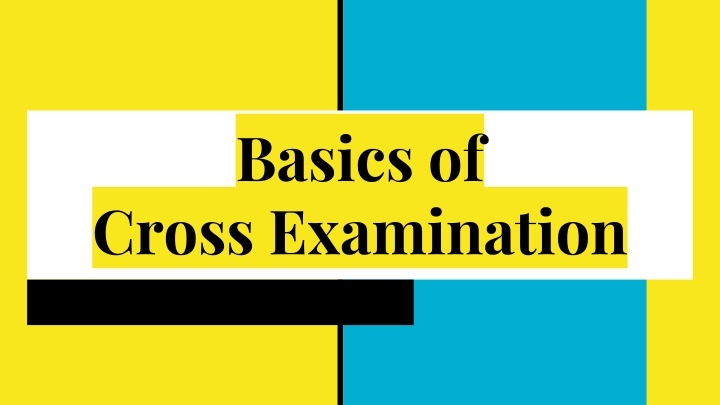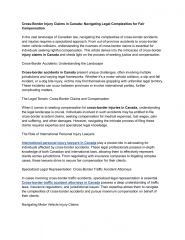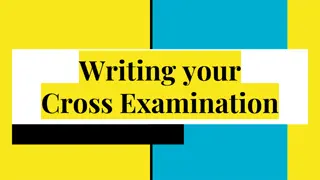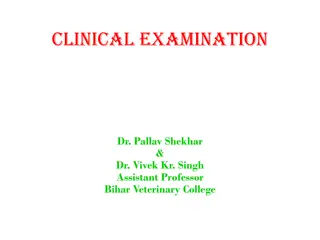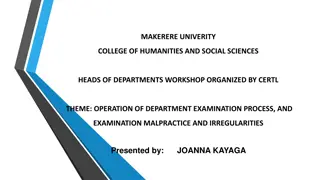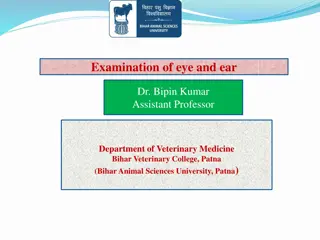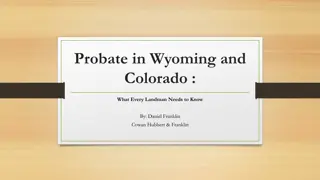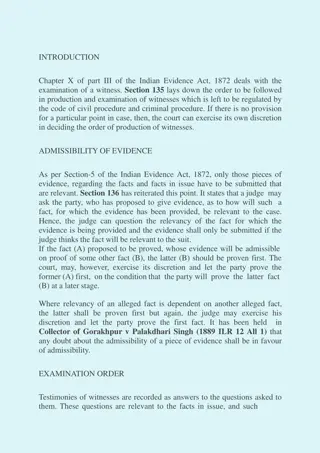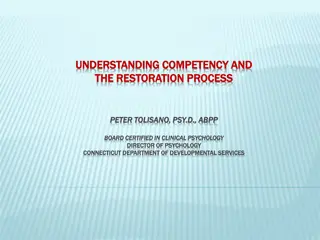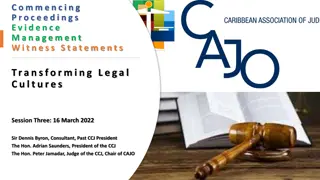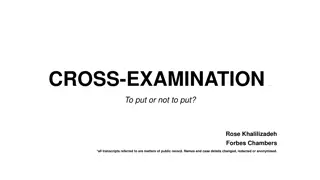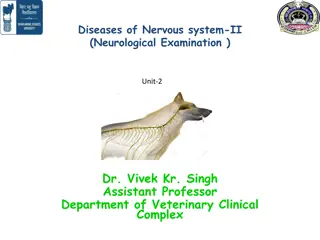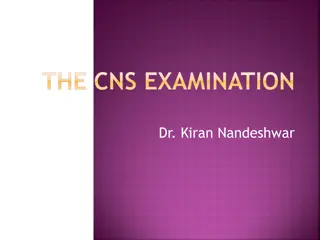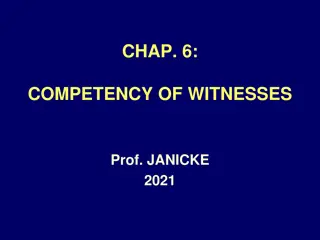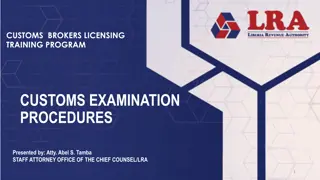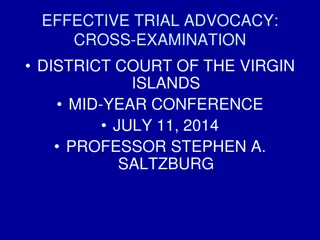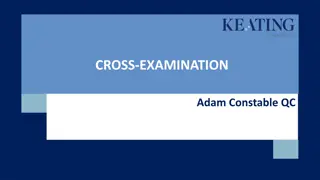Mastering Cross Examination in Legal Proceedings
Learn the basics and goals of cross-examination, along with strategies for controlling the witness effectively. Discover tips on conducting cross-examination professionally, avoiding common pitfalls, and asking compelling follow-up questions to strengthen your case.
Download Presentation

Please find below an Image/Link to download the presentation.
The content on the website is provided AS IS for your information and personal use only. It may not be sold, licensed, or shared on other websites without obtaining consent from the author.If you encounter any issues during the download, it is possible that the publisher has removed the file from their server.
You are allowed to download the files provided on this website for personal or commercial use, subject to the condition that they are used lawfully. All files are the property of their respective owners.
The content on the website is provided AS IS for your information and personal use only. It may not be sold, licensed, or shared on other websites without obtaining consent from the author.
E N D
Presentation Transcript
Basics of Cross Examination
Goals of Cross Examination Create a disconnect between judges/ jurors and the witness -- show the witness is biased -- show the witness could not have seen or heard what they said they saw -- challenge the witnesses ability to recall events favorably -- impair the credibility of the witness by getting them to admit to making contradictory statements in the past or by introducing exhibits that contradict their statements. -- challenge the opinion of an expert witness
Goals of Cross Examination Look for any admissions that support your theory and/or theme for the case
5 Rules for Controlling the Witness 1. Only Leading Questions -- questions that can be answered yes or no. You don t want to give the witness room to give an unexpected answer. Your goal is to ask a question that the witness can only answer by giving the testimony you want from them. 2. Know what the answer to the question should be 3. Only 1 new fact per question 4. Only short questions 5. Questions should lead to a specific conclusion
Dont try to do too much Pick a few points you want to make with each witness and stick to these. Organize your questions around the these topics Don t be tempted to ask too many questions or your really essential points will be lost in the mix
Conduct during cross examination Don t argue with the witness (this will arouse sympathy for the witness). If their answer is inconsistent with their witness statement, impeach them. (we ll cover this later). Arguing with the witness can also eat up precious time on the clock. Do not badget the witness and try to keep making the same point (this will also arouse sympathy for the witness). Make your point and move on. Speak clearly -- Make sure the jury keeps up with your questions
Be ready to ask follow-up questions If the witness does not explicitly answer your question, repeat your question and ask them to confirm an answer. You can end your question by directing the witness to answer with just a yes or no. And addressing the witness by name is often an effective tactic. For example: Q: Isn t it true that you had argued with the victim two days before he was attacked? A: I really wasn t all that upset with the victim. I had nothing against him; I have nothing against anyone, really. [This doesn t answer the question asked.] Q: Mr. Witness, you argued with the victim two days before he was attacked, yes or no? A: Yes.
Ask witnesses to clarify You might also have a witness that answers your question, but gives a lengthy response or tries to explain away his answer. If you are trying to get a critical fact out of the witness, ask the witness to confirm his answer. This draws the audience s attention to it. Here s an example: Q: Isn t it true that you had argued with the victim two days before he was attacked? A: Yes, but I didn t stay mad at him. Q: Is that a yes? A: Yes
Use the non-responsive objection sparingly Sometimes attorneys on cross examination cut off the witness the second the witness tries to say something more than just yes or no . They object as non-responsive because technically, anything more than yes or no is not an answer to the question. This is a legitimate objection. But if you make it too much, you can look aggressive and it makes you look petty. It also looks like you have something to hide and are threatened by what the witness has to say. Try to control the witness in other ways. Before objecting, consider using the techniques in the previous 2 slides. Object if the witness is super obnoxious about giving extended answers and explanations to the questions you ask. Be Wary: Some teams will use lengthy answers as a means to waste your time on crosses -- so stay in control. Use this objection if you need to keep control and keep time on the clock. Remember you only have 20 minutes for all 3 of your crosses combined.
Dont try too hard for a gotcha moment Elicit facts from your witnesses but don t expect them to put the information in perspective for you. For example, a witness confirms that the defendant John works out at the gym 3 times a week practicing judo. Don t ask him -- So that means John is capable of killing someone, doesn t it? Unless that point is addressed in the witness statement -- you might not get the answer you want. Instead, your team can make that point in their closing argument.
Acknowledgement Some information for this slideshow came from https://mocktrialnerd.com
